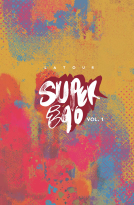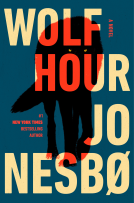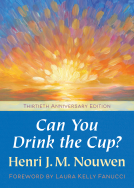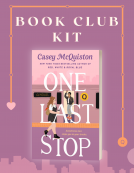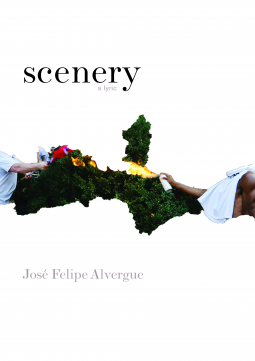
scenery
a lyric
by José Felipe Alvergue
This title was previously available on NetGalley and is now archived.
Send NetGalley books directly to your Kindle or Kindle app
1
To read on a Kindle or Kindle app, please add kindle@netgalley.com as an approved email address to receive files in your Amazon account. Click here for step-by-step instructions.
2
Also find your Kindle email address within your Amazon account, and enter it here.
Pub Date Sep 01 2020 | Archive Date Aug 31 2020
Talking about this book? Use #scenery #NetGalley. More hashtag tips!
Description
In scenery, lyric’s public voice and memoir’s personal reconciliations confront the archives of America’s racial and legal histories, resulting in a genre-bending exploration of what it means to exist as oneself for an Other. The author, a Salvadorean immigrant and parent, reflects on the status of personhood in America between racial supremacy and racial disavowal, thinking through his own structural role as a naturalized citizen, and naturalization’s historical condition in the denial of full legal and emotional Black personhood.
This daring work delves into the archive of liberal humanism from colonial era writing on the competing status of slaves to the present, while the visual archive of public news provides an ekphrastic environment to the author’s bigger lyric-memory: being the parent of a biracial American-born child in a contemporary era accentuated by violence, white nationalism, and fear.
From seventeenth-century casta paintings up to contemporary coverage of domestic unrest and riots, from the delivery room to scenes of parenthood, Alvergue ponders: What is the kind of emotion a face demonstrates, or a body, an assembly? scenery approaches, in an asymptotic manner, the empathy we come to feel when the language we’ve made is dulled by the roles we are also expected to occupy against one another.
Advance Praise
"Evoking his son's body, José Felipe Alvergue writes: 'How far will ribs expand. What is his. Who is it that is that his. Who is the one feeling skin stretch or the bones move.' This proprioceptive enquiry extends, for me, to the motif of arrival that moves through scenery. How bodies rebound or mix the moment of their implementation (citizenship) so that this moment is also the site of a citizen's complicity (legally, historically, psychologically) with everything that makes [made] their own trajectory a fact. This is a book that makes you look at landscapes, and the figures that occupy them, without bringing attention to the middle ground. The near ground, instead, is where this book focuses itself: images and accounts of bodies convened to suffer, distinctly so. In accessing these images so rapidly, simply by turning the page, I had the sense that Alvergue was saying something, to a possible reader, about the ethics of their own settled or concomitant gaze. What it would be to unsettle the lightness and momentum with which a person reads in the first place. The violence in this book, which is to say the history of violence that this book traces and converts to a kind of poetry, finds its counterpoint in the tenderness and care extended to the writer's child. Flesh notes. Empathy: how far + what is + who."—Bhanu Kapil
"scenery is 'a kind of study /that is a bracing/ for impact.' What José Felipe Alvergue tenses for in and perhaps through this brilliant and vulnerable book, is the wrack of reckoning. That wreckage sets on the pages in visual and lexical entanglements: 'gnarls' of complicity and protest, privilege and trammel, particular bodies and abstraction. Alvergue moves us through these ruins with unflagging emotional immediacy and intellectual urgency, turning, again and again, on the image of his newborn son, ashen, breathless. scenery is powerful work, stirred from an instance of the author’s desperate powerlessness. We should study this."—Douglas Kearney
Available Editions
| EDITION | Other Format |
| ISBN | 9780823288670 |
| PRICE | $25.95 (USD) |
| PAGES | 112 |
Links
Average rating from 13 members
Featured Reviews
 Librarian 346330
Librarian 346330
Haunting and soul-stirring, this collection is full of potent and poignant pieces, in poetry, prose and pictures.
Great! I would like to reccomend this to people studying the Civil war. The piems were set up differently and the pictures were well presented. I gave this 4/5.
José Felipe Alvergue's Scenery is a rich investigation of language, and specifically language's relationship with the politicization and (de)humanization of black and brown bodies in the American landscape, in some ways very reminiscent of Layli Long Soldier's stunning work Whereas. Alvergue's words and chosen images linger in one's mind longer after reading.
This is a collection full of powerful words that capture reality and experience — just the writing you want in a fine literary collection.
 Beth B, Reviewer
Beth B, Reviewer
This was super unique and creative, while also taking on incredibly serious and painful stuff: racism, history, being "the other," and the emotions that come along with all of that. Snips of poetry mixed with quotes from books, the Dred Scott decision, historical photographs, and memories from Alvergue's life make for a compelling experience.
It gives you context about important subjects, such as racism, historical telling of colonization, what it meant when Americans gave birth to America - the sideeffects were massive.
The author used powerful, and profound wording, gave insight to a new reality - into one I couldn't be and couldn't have been part of.
Readers who liked this book also liked:
L.M Montgomery
Children's Fiction, Comics, Graphic Novels, Manga, Teens & YA
We Are Bookish
Mystery & Thrillers, OwnVoices, Teens & YA
Silvia Moreno-Garcia
Historical Fiction, Literary Fiction, Sci Fi & Fantasy
